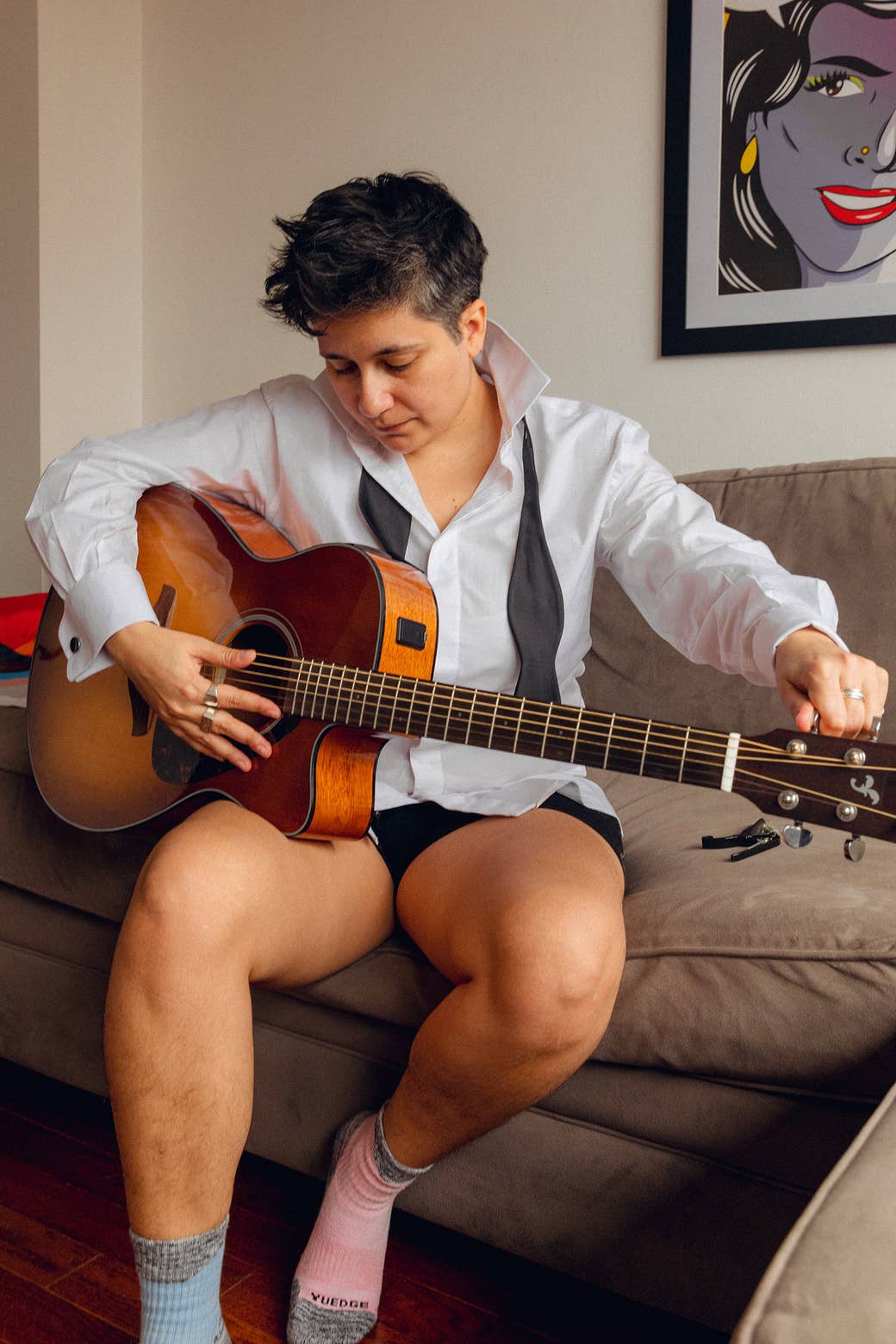
One day, when I was 8, I was sitting at my family’s piano, weaving together what felt like an inspired selection of notes. My brother, Zafar — three and a half years older and infuriatingly hard to impress — asked, “Where did you learn that?” I told him I was making it up, and he steadfastly refused to believe me. I was equal parts outraged and thrilled.
As a kid, I wrote music a lot. I had taken some lessons in piano and guitar before deciding I would have more fun composing something new than practicing scales. It came so naturally. I didn’t know how to read or write music — I still don’t — but I could just sit down with an instrument and improvise or re-create a song I’d heard on the radio.
Music became one of the few ways I experienced freedom in an otherwise stifling world. I grew up in a dysfunctional home with a lot of tumult. I was undeniably queer and brown, which created a whole other set of issues, including racist and anti-queer bullying and shaming. By the time I was 22, I had been sexually abused by multiple people and raped by another. My mother had almost died from cancer, and I was her primary caretaker. I’d developed a debilitating form of fibromyalgia, which I had to drop out of university to manage, and my brother, my closest ally, died when he was 26. And while I now refuse to see myself as a victim, I do understand myself to be traumatized, which is an integral part of this story.
Throughout all of that, music was my saving grace, helping me survive and make sense of emotions I could not articulate or understand in any other way.
In 2008, when we found out my brother’s aggressive brain cancer was terminal, I wrote a song for him and recorded it. A few months later, I sang it at his memorial service. I didn’t write another song or play music seriously for 14 years. It felt as though that part of me died with him.
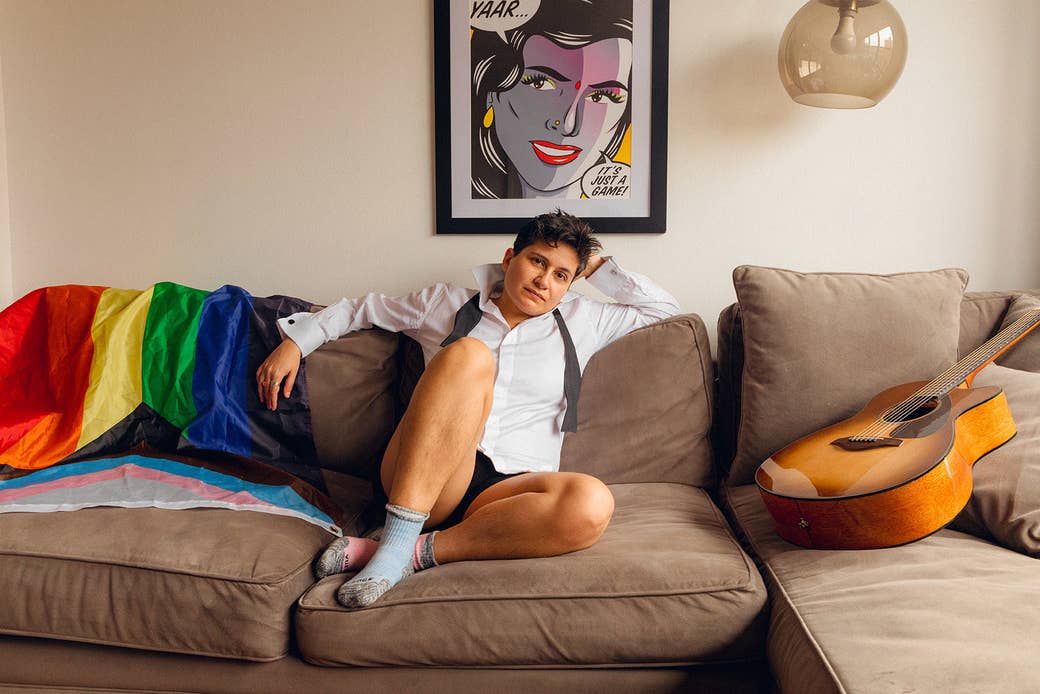
At almost the precise time I came out as trans, around six months ago, I started playing music again. Yes, it’s too on the nose: I literally found my voice again. Songs started pouring out of me. Now I play and sing every day, and I’m writing songs frequently, recording them on my phone to remember them, and planning gigs. Through the overwhelming transition of recalibrating my life, reorienting away from playing the woman I'd trained myself to be and toward my identity as a transmasculine nonbinary individual, music has grounded me, just as it did when I was younger. It helps me make sense of things I otherwise struggle to understand. It helps me heal.
Amid my newfound journey toward gender euphoria, I had come up with a plan for medically transitioning, which included taking testosterone, or T, and then having top surgery. Then I found out what T does to your vocal cords. It thickens them, which is what lowers one’s voice. But it can weaken your singing voice and reduce the range of notes you can sing; during that first year, when one’s voice breaks, some trans men have reported not being able to sing much or really struggling to do so. In addition, people assigned female at birth have a lifetime of muscle memory associated with thinner “female” vocal cords. This makes it harder for transmasc folx to control their singing voices as the composition of their vocal folds change; it requires a lot of retraining.
D’Lo, a Sri Lankan American transmasc actor, writer, and comic, delayed taking T for many years for this very reason. “I was known for these multicharacter shows where I had a different voice for [each character],” he said. “With a more feminine voice, for lack of a better way of talking about it — a nontestosteroned voice — I had more range. I could play old people, I could play young people, I could play men, I could play women. I liked the magic that I was able to offer in my very queer body and I knew that I was going to be letting go of that. And I mourn that still.” But for D’Lo, who began taking T in 2015, grief does not equate to regret. “I wouldn't be on such solid ground had I not taken T and had I not gone through the lessons that T afforded me.”
Some of the changes that occur on T, like muscle growth and increased sex drive, reverse if you stop taking it (though responses to hormones are very specific to an individual). But the changes to your vocal cords are irreversible. For many trans men and transmasc people who use their voice to perform, taking T is the right choice; it is so deeply personal. But I couldn’t bear the thought of not being able to sing with the voice that I have or potentially not much at all for a year while my body adjusted. So I decided not to take it for the time being.
The decision was devastating. I believed I needed to be seen as a man to be taken seriously as a man — having a deep voice was a big part of that — and that not taking T would mean resigning myself to a life of constant misgendering and denial of my identity.
When I first came out, well-meaning people asked whether I was going to “fully transition,” which subconsciously reinforced the violence of the gender binary, despite the fact that I was more fully me than I had ever been. I saw taking T as a resounding “fuck you” to a lifetime of people denying my masculinity and transgenderism. No one could do that if I had a beard and muscular body and a baritone voice. And not taking T made me feel like I was abandoning younger versions of myself, exiled little boys that lived inside me. I felt shame around that.
I thought I needed to have my gender identity seen as real by others in order to have it count, but of course the inverse was true: I needed to see myself as real first.
My therapist compassionately made space for my grief and held it with me, which helped me to feel like I wasn’t trapped. This created an emotional opening just big enough to fully take in what one of my dear friends texted me later that day: “I wonder if there’s room, in this giant and complex and daunting question you’re answering about yourself, to regard taking T or not taking it, as not really what will ‘count,’” she wrote. “It comes with other big positives. But you are choosing the path that works for you — and becoming you — and part of that is singing your heart out.”
And so I began to reevaluate my relationship with masculinity, to learn how to feel confident, centered, and joyous in ways that didn’t strictly conform to the gender binary.
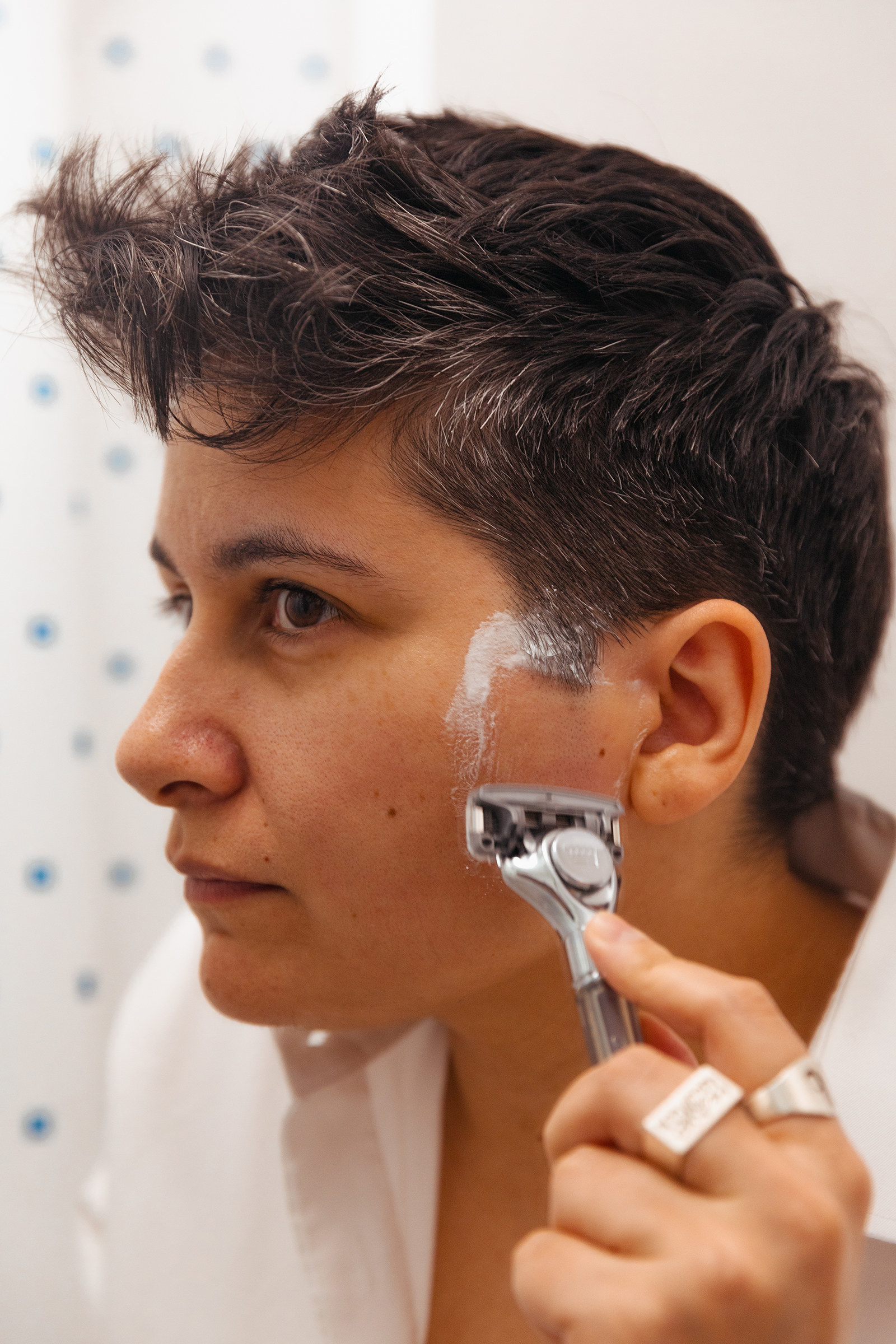
My therapist, Kathryn Hansz, practices a form of psychotherapy called internal family systems (IFS), which has exploded in popularity in recent years. It has been integral to my being able to come out as trans. The premise is that we comprise a core essence — the Self — and a multitude of other parts (think: Pixar’s Inside Out) whom you work with to develop a relationship. As you heal, you unburden them from extreme roles they were forced into due to trauma. For instance, you might still carry coping mechanisms developed during a traumatic period of your childhood. The intention is to redirect these parts to their original roles, which serve and benefit the entire system. For example, the exiled boys of various ages, who were led to believe they needed to die in order for me to survive — for the first time, I am trying to be in a relationship with them.
Dr. Frank Anderson, a preeminent IFS therapist, psychiatrist, speaker, and author who focuses on trauma, is gay. When he was 6, his parents started sending him to conversion therapy. He married a woman before eventually coming out and marrying a man. I asked Anderson, who is mixed-gender, how he understood the concepts of masculinity and femininity. “Defining gender restricts people from having a range and being able to embrace whatever place they're in … particularly for straight people, who then jump into these predefined roles,” he said.
He expressed his dismay at gender stereotypes, saying they are corrosive for everyone, irrespective of gender identity or orientation. “‘Boys aren't supposed to wear dresses. Girls are not supposed to be tough and strong,’” he said. “I think there's so many messages that culture and society like to impose on us very, very early on in a way that's really confusing for kids to grow up [around].”
Anderson noted how these definitions can also constrict trans people. “I think a lot of trans people, just like cis, hetero people, have this range of masculine and feminine in them. Are we supposed to disavow our feminine if we're transitioning from F to M? I think we want everybody — trans people, straight people, hetero, gender-neutral people — to hold the range of who they are.”
Anderson’s comments unlocked something inside me: I was trying so desperately to become something I feared. On one hand, I feel most at ease when I allow space for my masculinity to show up. It’s a hard thing to describe: There’s a groundedness, a quiet confidence. On the other hand, I had also come to understand masculinity as rape, as sexual abuse, as sexual harassment, as violence, as domination. In my quest to understand and embrace and assert my gender identity, I was, as Anderson suggested, disavowing all my feminine parts. But what was I left with?
If I were honest with myself, part of me wanted to take T to circumvent negotiating my incredibly complicated relationship with masculinity. If I could skip to the other end of the spectrum, if I could be seen and treated as a man, then I could bypass the murky space in between — or so I had convinced myself.
After I came out as trans, after the initial boost of euphoria, I descended into a deep depression. There was a confluence of reasons. I was experiencing a devastating breakup. One of my parents has really struggled with my being trans. I was not prepared for the way the world would treat me; I had taken for granted how many advantages I had in passing as a cisgender, straight woman for most of my life.
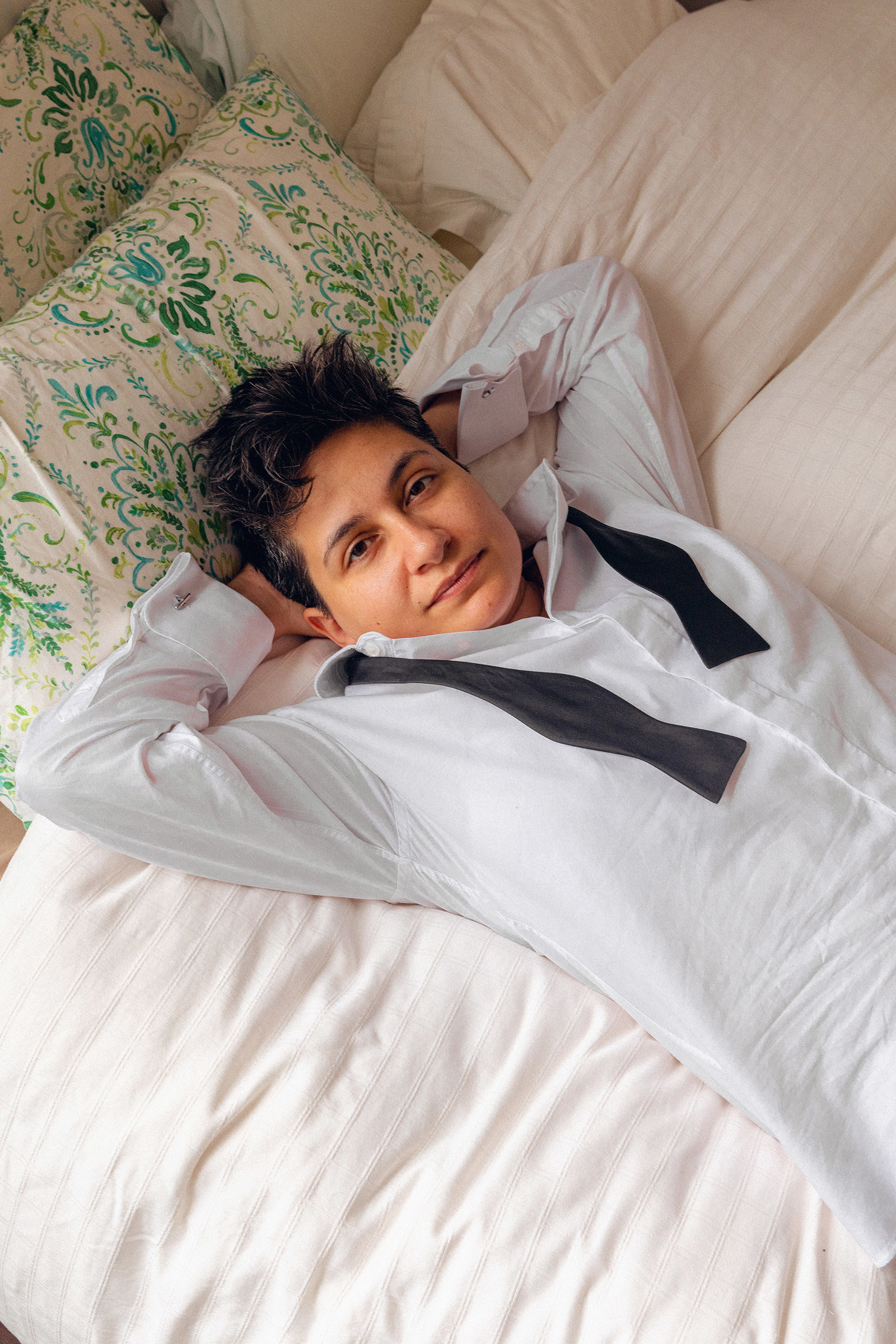
But I realized I had also been at war with myself. Parts of me were trying to kill off my feminine parts while simultaneously clinging onto ideas, feelings, embodiments, and expressions of masculinity, much of which I also distrusted. My desire to die during those months suddenly made a lot more sense.
Anderson helped me untwine my ideas of masculinity from the people who had harmed me. He suggested that I had not learned to differentiate masculinity from my experiences of violation. “That's not what a man is,” he said. “When they project and act out on you, you should fear that. But you want to differentiate gender from wounded parts.”
When I unpacked all of this with my therapist, she took this a step further. When I was raped and abused, my therapist suggested, I had been robbed of my masculinity. Over the years, this concept had never entered my mind. I wept, releasing my pain and grief, but also relief at understanding why I was struggling to reclaim that part of myself.
Disentangling the messy viscera of the relationship between masculinity and sexuality is both daunting and vital. As I become increasingly masc-presenting, I’ve also been reflecting on the pressure men and masculine-presenting individuals feel to dominate in the sexual realm. (Similarly, I know plenty of femme queer women who feel equally confined by heteronormative sexual roles in which they are passive.) “[B]inaries of gender, sexuality, and family intersected in participants’ lives and their narrative constructions,” a 2019 study on the impact of heteronormativity in identity formation among young queer people found.
But I resent this common expectation. Not because I don’t like being in a dominant role, but because that is not the only thing I like. I also resent that some part of me believes fulfilling this role will make me more of a man. “Tragically, if masses of men believe that their selfhood and their patriarchal sexuality are one and the same, they will never find the course to create liberating, fulfilling sexuality,” bell hooks writes in The Will to Change: Men, Masculinity, and Love.
hooks also describes the shortcomings of feminism’s early iterations, which identified rage at men and patriarchy but stopped short of identifying the grief and anguish women and children feel when men cannot be what they want and need them to be. “To simply label them as oppressors and dismiss them meant we never had to give voice to the gaps in our understanding or to talk about maleness in complex ways,” she writes. This distortion of masculinity — undergirded by domination and accompanied by fear — makes many interactions with cisgender men strained.
For some, the unbearable grief that comes with losing a close male figure can also be accompanied by an equally unbearable sense of freedom, even more so for people who were abused.
I had always felt safer with my brother than I did any other man. We grew out of the usual big-brother bullying dynamic by my early teens, but, even before then, Zafar protected me more fiercely and consistently than anyone else in my life did. I certainly didn’t feel freer when he died; I actually felt a lot less emotionally safe.
Yet, in my last moments with him, I had never felt safer or freer next to his body — in the physicality of it. He was being artificially kept alive so his organs could be harvested in accordance with his wish to donate them; by that point, the doctors had declared him brain-dead. I softly rested my head on his shoulder and slipped my hand in his as he lay there, lifeless. And for a brief period of time, I drifted off into a tranquil sleep with him.
I will forever cherish that moment. I don’t really remember the words we spoke in his final days. But I remember that moment of safety. And I think what a tragedy it is that the world conditioned both of us in such a way that our freest and most transcendent physical interaction occurred as he was dying. There was nothing about him that was inherently masculine or feminine as he lay on that bed. Conversely, in my profound grief, without the bandwidth to consciously litigate my gender identity, I organically exhibited so-called paternal instincts and also so-called maternal ones. I felt physically protective, not wanting people to crowd him so he could leave in peace, and emotionally protective, wanting to ensure tenderness in his last moments on earth.
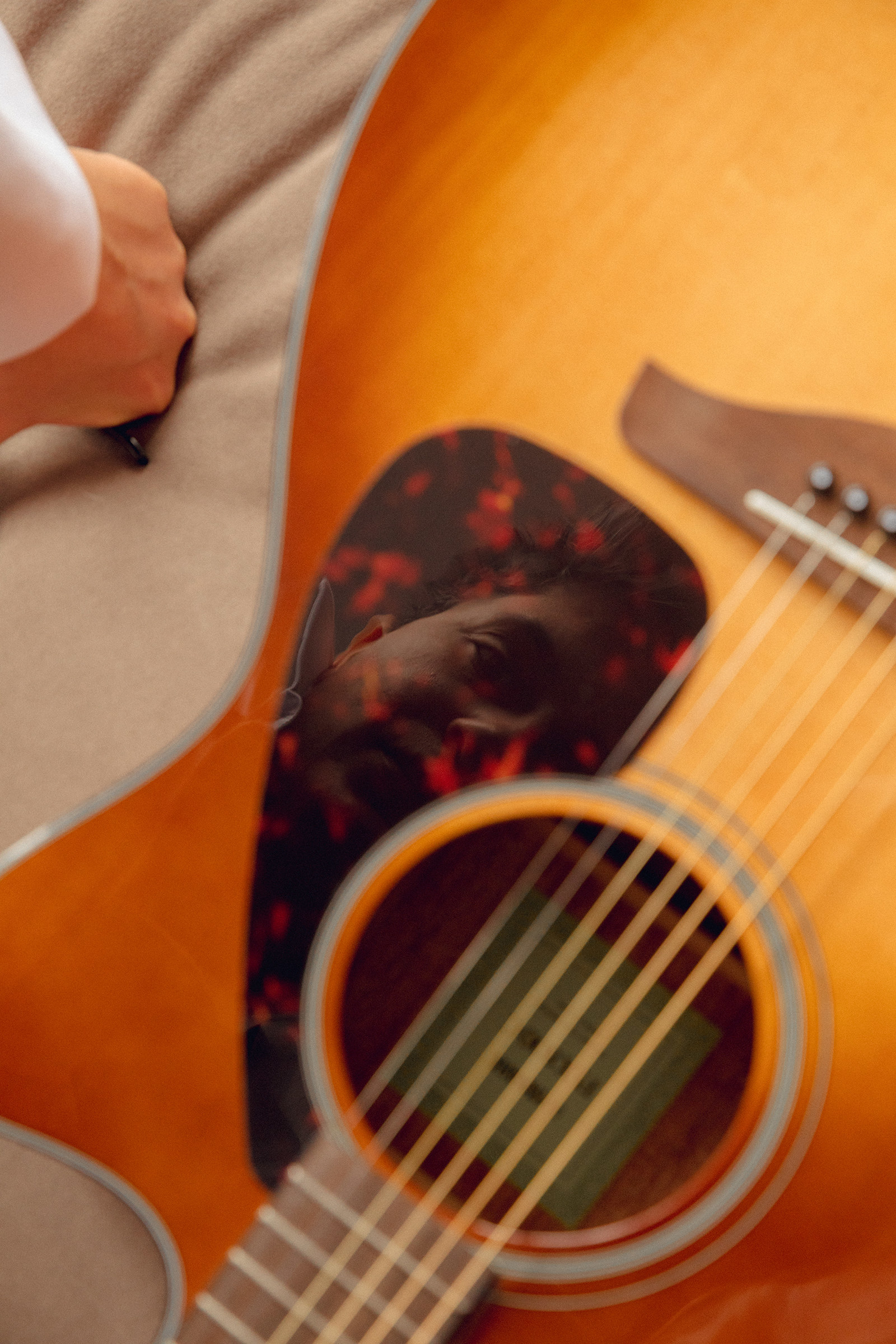
Many of us know by now that patriarchy hurts men as much as it hurts women and nonbinary people. I wanted to talk to my good friend, Andy Rohr — with whom I’ve had a number of expansive conversations about gender — because I realized any meaningful exploration of masculinity necessitated the inclusion of a cis, straight man’s experience of it.
On a video call, Rohr described how oppressive ideas of masculinity are, particularly with the relentless expectation that men should lead, whether in professional settings or intimate ones. “There’s a little bit of fear of judgment from others if you’re not dominating,” he said.
This contortion of masculinity often obliterates vulnerability. “Even just to share things — personal things about your life that are maybe uncomfortable — it's very difficult,” he said. “I struggle, mightily, to talk to any of my male friends about those things.”
To my delight, Andy explained that one of the few ways he feels liberated from these confines is through music. He finds a sense of liberation through his love of queer artists, like St. Vincent, and, more broadly, musicians who defy or play with expectations of gender and sexuality. “It might not seem like much, but it is very affirming to step into that other world — a world that's open and that doesn’t quite have those same confines in the rest of life,” Andy said of the concerts he attends.
Music has the capacity to contain everything we associate with gender: It can be gentle, strong, aggressive, sensual, a conversation. It can be out of sync, just as I was. My musicality gives me the space to be curious and explore, as Anderson says, the full range of who I am. What better way to embody that range than being an instrument? Each musical note can sound different depending on the notes that come before or after. My gender is the same. It is a continuum, informed and shaped by what comes before and after it. When I take in a breath to sing, I contain every possibility before I let out a sound.
Like D’Lo, I love the queerness of my body, in both a literal and metaphorical sense. I love singing lyrics about what it means to be a man with an undeniably feminine voice. None of this precludes my taking T one day, but by using the voice I was born with, I can learn how I feel most comfortable existing. And that can change over time.
I’m learning how to accept liminal spaces — the spaces between grief and celebration, loss and abundance, death and life, shame and liberation, masculinity and femininity. I am part man, I am part woman. I am both and I am neither. The irony is, of course, that only in existing between these extremes can I feel secure in expressing masculinity in my own way — not as domination, but as my own experience of gender, which sits quietly and securely inside of me rather than something I feel compelled to brandish and wield.
There’s a lot about the uncertainty of transitioning that feels frightening. I know I don’t want breasts, for example, but will I also mourn them when they’re gone? “Be patient toward all that is unsolved in your heart and try to love the questions themselves, like locked rooms and like books that are now written in a very foreign tongue,” Austrian poet Rainer Maria Rilke once wrote in a letter. In embracing the in-between, I can find peace in asking these questions rather than frantically searching for answers.
And in moments when I feel destabilized or scared, when I find myself desperately grasping for answers and certainty that aren’t there, I will return to music. There, I will traverse the range; I will exist in the spaces in between. And I will be free. ●

